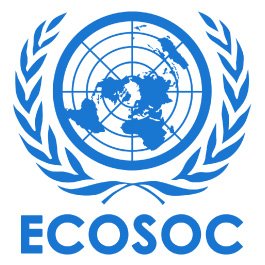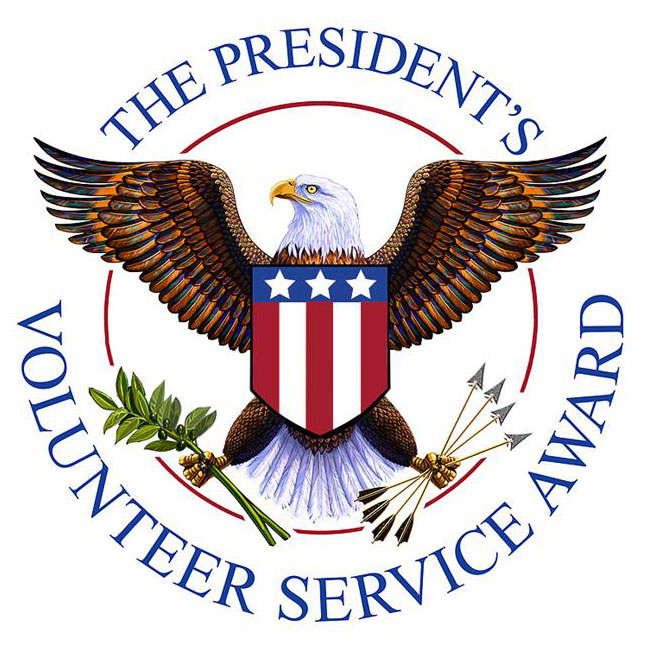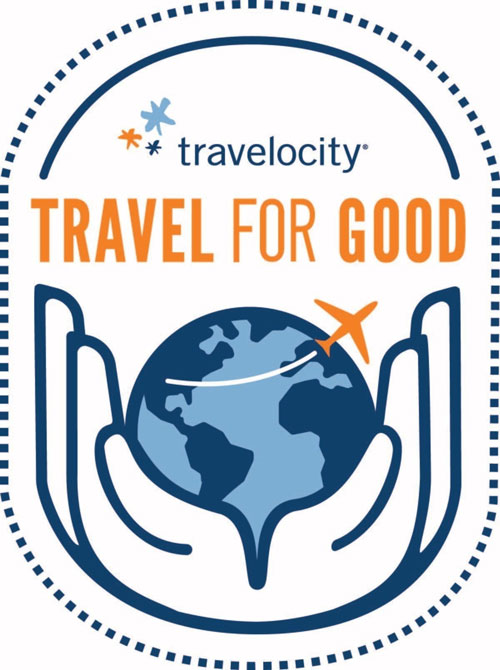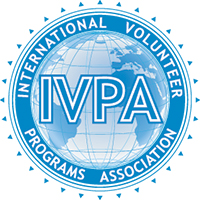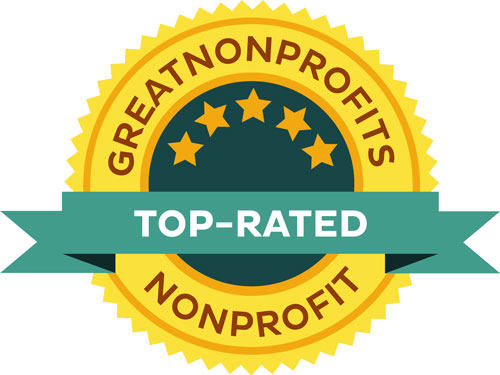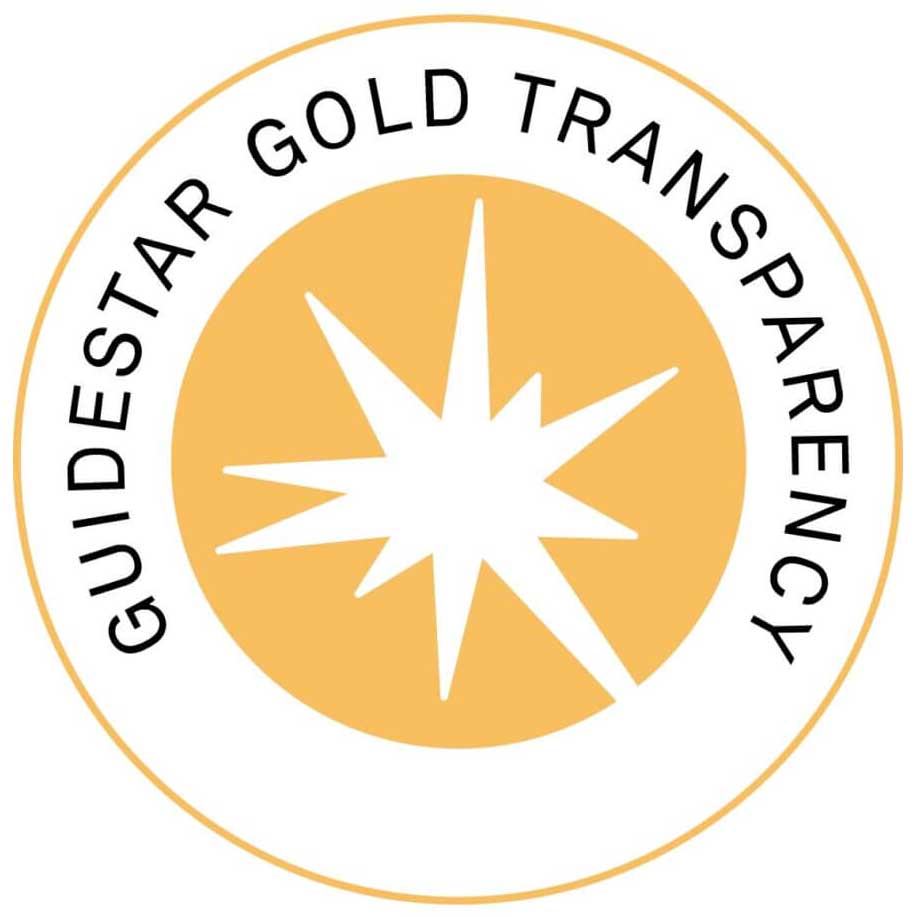Featured Articles Style 2
Featured Articles Style 2
Featured Articles Style 2
Globe Aware Founder Pivots During COVID Travel Shutdown
- Source: Good Morning Texas
How to Volunteer While Traveling With Your Kids
- Source: Travel + Leisure
How to Volunteer While Traveling With Your Kids
Looking for meaningful travel? Volunteering lets you give back and grow as a family.
By Ken Budd
July 15, 2021
Travel + Leisure
When Jodi Lipson's daughter was seven, the duo embarked on a mommy-daughter adventure — and no, they didn't travel to Disneyland. For one week, the pair did maintenance work at a hostel in Peru and helped local schoolchildren learn English. They soon worked on three more projects with volunteer organization Globe Aware in Guatemala, Cambodia, and Costa Rica. The experiences, said Lipson, who works in book publishing in D.C., have expanded the worldview of her now 13-year-old daughter.
"We've met so many people," she said. "We have a whole repertoire of experiences, feelings, and memories."
As travel-hungry Americans start dusting off their passports, meaningful travel will top many bucket lists—and short-term volunteering should be on your radar. Volunteering abroad was ranked number three on a list of most-desired post-pandemic travel opportunities in a recent survey by Go Overseas, a resource site on meaningful travel.
"People are longing for the type of healing and meaning that our volunteer programs offer," said Michele Gran, co-founder and senior vice president of Global Volunteers.
For kids, volunteering can reveal a world beyond their screens and fuel a lifelong interest in giving. It also helps families to escape their comfort zone, bond, and immerse themselves in local cultures. Volunteering might even impact your child's future. A teenage volunteer with Earthwatch, a scientific organization that runs expeditions worldwide, wrote her college essay on her volunteer experience and was admitted to Stanford. She's now been admitted to several PhD programs in ornithology, which was the focus of her Earthwatch expedition.
Interested in volunteering with your family? Consider these possibilities:
One-day options
You can help others while staying at a hotel or taking a cruise. Crystal Cruises' "You Care, We Care" program provides volunteer shore excursions that range from planting trees at Iceland's Heidmork Natural Reserve to cleaning the banks of the Buñol River in Spain. The Ritz-Carlton offers service opportunities, known as Impact Experiences, as part of its Community Footprints program. These volunteer options are primarily designed for businesses and conferences, but hotels and resorts will also arrange them for families. Several families at the Ritz-Carlton, Amelia Island, for example, recently helped clean area beaches.
Some Airbnb hosts work with local nonprofits to arrange "Social Impact" experiences. Your activity fee supports the nonprofit and you'll get an inside view of their work—and maybe even help out. In San Diego, one Airbnb host is a cofounder of Free Animal Doctor, a nonprofit crowdfunding platform that helps people care for their animals. For the Social Impact experience, guests exercise and socialize rescue dogs for adoption events.
You can also organize volunteer work on your own by asking local nonprofits, visitors bureaus, and tour companies about service opportunities. In Hawaii, giving back can even save you money: Travelers who volunteer during their visit can get a free night at participating hotels.
More-immersive volunteer gigs
For a deeper experience, consider a volunteer vacation, also known as voluntourism. Organizations such as Global Volunteers, Globe Aware, and Projects Abroad run one-week-or-longer family programs in the United States and abroad. Some allow children as young as six; others, like Earthwatch, have a minimum age of 15. Most organizations also provide cultural activities (such as language lessons) and tourism opportunities (the Lipsons visited Machu Picchu while volunteering in Peru).
Multiple organizations expect to relaunch projects in late 2021, though 2022 may be best for families interested in international volunteering, especially as countries start requiring COVID vaccinations, for example, it could create entry issues for children and teens who aren't vaccinated yet). Organizations such as Globe Aware, which has restarted programs in countries such as Costa Rica, Guatemala, Ghana, and Kenya, are taking steps beyond masks and social distancing to protect locals and volunteers: "All our projects, leisure activities, and meals are outside," says executive director Kimberly Haley-Coleman. Global Volunteers is offering programs in Montana, West Virginia, Poland, and Tanzania in July.
Thinking about a weeklong volunteer vacation? Take these steps:
Do your homework. Sites like Go Overseas, Go Abroad and Volunteer Forever post info and reviews as well as tips on family volunteering.
Ask questions. Inquire about subjects such as safety, food, and accommodations. Will you stay in a hotel? With a local family? Are there day trip opportunities to local communities if you're staying in a central location or major city?
Talk with a former volunteer. "Any reputable organization will give you a list of people to speak with," said Alia Pialtos, COO at Go Overseas. "Talking with someone about their experience is different from reading testimonials."
Understand the program fee. Organizations charge a fee that covers everything from lodging to transportation. Find out how your money is spent.
Scrutinize the screening process. Many organizations, for example, require a background check if you're working with kids. If they don't, that's a warning sign.
Ask about the work. Is it necessary? Does it match your talents? If you don't have construction skills you shouldn't be building houses. And make sure you're not taking work from locals.
Appreciate the intangibles. One of the biggest upsides of volunteering is that people talk who would never talk otherwise — which changes how we see each other.
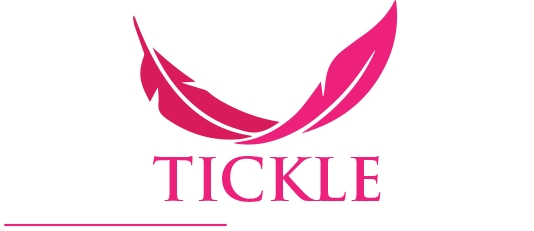
Globe Aware shifts gears to survive COVID shutdowns
- Source: Dallas morning News
Dallas Tickle Bar Creates Sensation
By Eric Griffey Dallas
Jan. 09, 2021
DALLAS — There is nothing lewd about the Tickle Bar. The website and Facebook page of the new Mockingbird-area business make it clear that illicit activities are strictly forbidden here. Yes, the half-naked woman splayed on a bed whose image is prominently featured on the place’s website appears to be in mid-moan, but that’s strategic, according to owner Kimberly Haley-Coleman.
What You Need To Know
The Tickle Bar offers experiences, like tracing and scratching, designed to produce endorphines
The business does not offer massage or traditional spa treatments
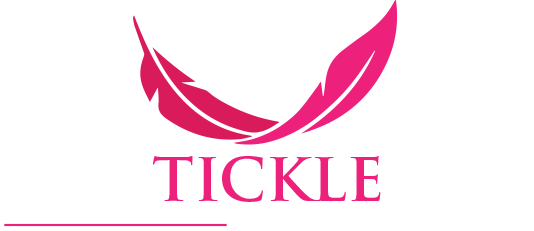 The Bar's owner, Kimberly Haley-Coleman, founded the business when the pandemic slowedher nonprofit, Globe Aware
The Bar's owner, Kimberly Haley-Coleman, founded the business when the pandemic slowedher nonprofit, Globe Aware
New business offers services that benefit children on the autism spectrum
“I knew we weren't going to spend millions of dollars advertising,” she said. “So, if I did this with a bit of a wink, we would be able to get more attention. If I’d called this a ‘back-scratch store,’ I wouldn't have had as much attention, and we needed that.”
The Tickle Bar is a Mecca for sensory indulgence. The “bar” offers services that include scratching, skin tracing, and other light-touch-induced modes of serotonin-drenched euphoria — all while enjoying a sweet treat or a glass of wine. What you won’t find at The Tickle Bar is a massage package. Haley-Coleman said her model was the Drybar, which focuses only on blow-drying hair with no cutting, coloring, or any other services normally offered by salons.
“There's a sense of luxury to your surroundings,” she said. “So the idea is that you're getting kind of a feast for all the senses, not just for your skin, but you're getting a little cookie and a little wine, you've got all these soft gauzy textures, quiet music, and people are whispering.”
Her business is one of a growing number of pandemic pivots. While many small businesses around the country have been crushed by the COVID-19 shutdowns and other restrictions, there has also been a surge in new businesses this year, according to the U.S. Census Bureau. By the week ending Dec. 5, the bureau reported, business applications were up 43.3% over the same period in 2019.
This uptick, however, is offset by the fact that about 28.8% of small businesses were closed for good as of mid-November, compared with the start of the year, based on data tracked by Opportunity Insights, a nonpartisan, not-for-profit research organization based at Harvard University.
For her day job over the last 20 years, Haley-Coleman has served as executive director of Globe Aware, a Dallas-based nonprofit that offers people “volunteer vacations,” combining wanderlust and altruism.
When COVID-19 strangled the U.S. economy and ground travel to a halt back in March, Globe Aware limped along, hosting online events and virtual fundraising. Haley-Coleman brainstormed ideas for ways to bring in money — a business that could support her and donate its profits to the nonprofit she founded.
She said she asked herself a series of questions that led to the creation of The Tickle Bar: “What do people want? What are they hungry for? What did they not have right now? And what do I want? what do I miss?”
“Frankly, if I had all the money in the world, I'd rather get my back tickled than a massage,” she added. “I just started thinking, ‘You know what? That is so crazy that I think I'm going to do it. And if I'm ever going to do it, now's the time.’ ”
The reaction to her business has been mixed, she said. Some people find the idea of a tickle bar brilliant, while others just don’t understand the concept.
“It tends to evoke a very hot or cold response,” she said.
Though the name might conjure certain salacious or just plain silly imagery for some, the work of The Tickle Bar is backed by science.
Some of the techniques employed by Haley-Coleman’s staff have proven beneficial and calming for people on the autism spectrum, for example. Still, that hasn’t stopped the imaginations of faceless internet trolls from weighing in.
“I get that there might be a sense of humor around anything that has the word tickle in it,” Haley-Coleman said. “There seems to be 20 or 30% of the population that can't get past the giggling nature of it, despite the fact that there is a very serious [health benefit] to sense of touch, whether it's massage, kids on the spectrum, or even people enjoying getting their scalps scrubbed from getting shampooed.
“That sense of touch, to me, has nothing to do with giggling or anything inappropriate,” she continued. “But for a certain segment, it's hard for them to get past that for whatever reason.”
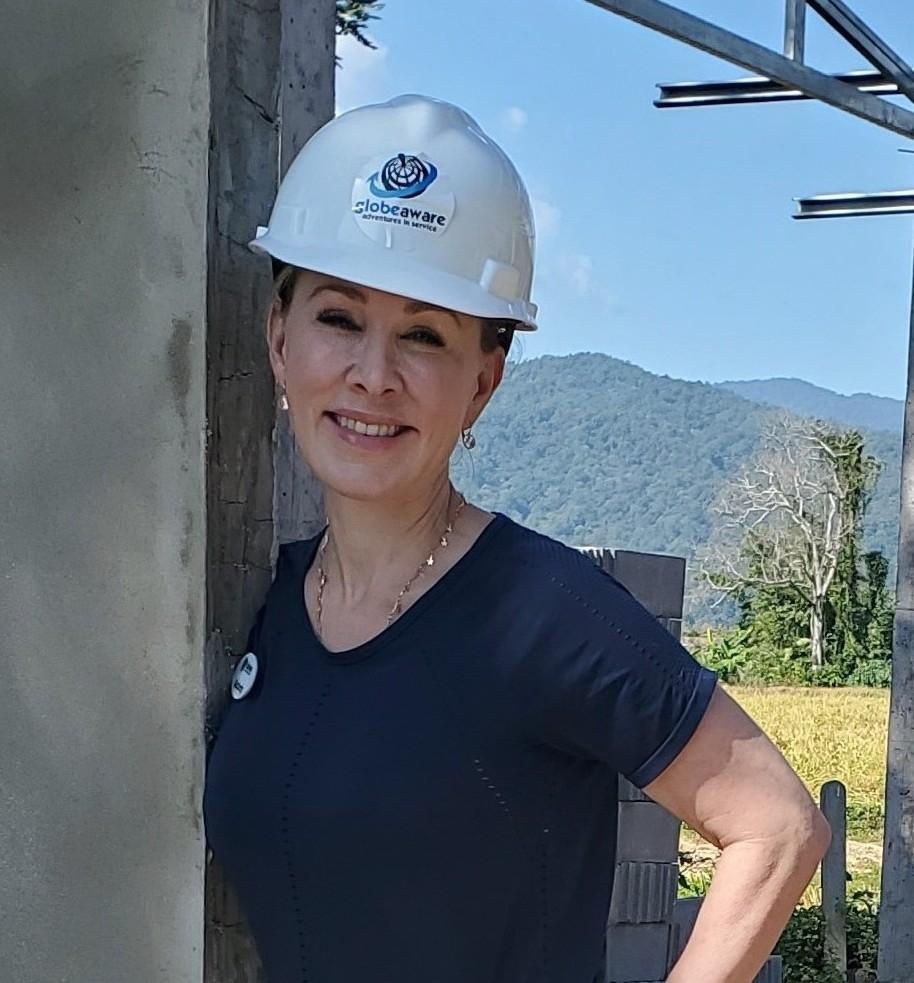
Globe Aware-founder Kimberly Haley-Coleman Profiled by Texas Business Hall of Fame
- Source: Texas Business Hall of Fame
Name: KIMBERLY HALEY-COLEMAN
Scholarship Year: 1995
Professional Background: CEO and Founder, Globe Aware
Education:
- Southern Methodist University – MA, Art History
- University of Dallas – MBA, International Business
- Emory University – BA, Art History, French, Marketing, Italian
About Kimberly Haley-Coleman and her company: Pairing her business acumen with a passion for international volunteering, Kimberly Haley-Coleman has been a leading figure in the nonprofit and for-profit sectors for more than two decades as she has helped promote awareness and access to volunteering opportunities abroad.
Global tourism and the coronavirus
- Source: Bloomberg
What impact will the coronavirus have on tourism in 2020? Some predict the effects will be felt globally, into 2021.
The Coronavirus’s Effect on Tourism Will Carry Into 2021, Experts Say And it won’t just affect China, either.
By Nikki Ekstein
February 13, 2020
Bloomberg
Coronavirus May Affect Tourism Into 2021
Earlier this week, even as infections of the novel coronavirus seemed to be slowing, the effects of the epidemic on the global tourism industry were accelerating rapidly.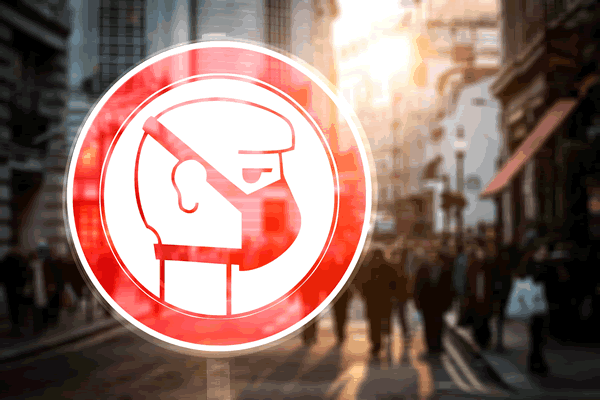
The impact of the pneumonia-like disease caused by the virus, called Covid-19, is already being felt across the Asian continent, where leisure and business travel contributed $884 billion to gross domestic product in 2017, the most recent year for which data has been compiled by the World Travel and Tourism Council. (Projections for 2018 are about $1 trillion.) For China alone, inbound tourism brought in $127.3 billion in 2019, according to the country’s tourism bureau.
But as diagnoses tick upward again, travel agents, operators, and hoteliers are bracing for at least months, if not a full year, of economic disruption from the outbreak, with long-term effects that may ripple well into 2021.
“The numbers of trip cancellations—not just to China but to the entire continent of Asia—is growing every day,” says Jack Ezon, founder and managing partner of luxury travel agency Embark Beyond. “People are put off. Sadly, a lot of them are just saying, ‘I don’t know if I want to go anywhere right now.’ Or, in many cases, ‘I’ll just go next year.’ ”
So far, almost 75% of his travelers have canceled their February and March departures to Southeast Asian countries, which the U.S. Centers for Disease Control and Prevention still considers to have a lower, level one risk for coronavirus. “They’re worried about being anywhere close to the outbreak,” he says, “or of getting stuck with canceled flights if other hubs become infected.” A full 100% of the honeymoons his agency had booked to the region have been canceled and rebooked for alternate destinations including the Maldives, Southern Africa, and Australia.
Hilton Chief Executive Officer Chris Nassetta told investors on Feb. 11 that he expects the impact of the new coronavirus to last anywhere from six to 12 months: “Three to six months of escalation and impact from the outbreak, and another three to six on recovery,” he said. He estimated the cost to his company could be from $25 million to $50 million.
Why so long?
Weather, Weather, Weather
When it comes to leisure travel, the biggest question usually revolves around location, location, location. Once that’s been decided, weather dictates all. “North Asia you can do year-round, but Southeast Asia is much more challenging,” says Catherine Heald, co-founder and CEO of the Asia-focused travel specialist Remote Lands. “Thanks to monsoons and very hot temperatures in most of that region,” which last roughly March through September, “people aren’t looking seriously at rebooking until the fall,” she says.
For families, school schedules can complicate plans. “We had one family looking at traveling over spring break, and they won’t have that same window of time until next year’s spring break,” she says. “They’re rebooking for 2021.” The same logic applies for those who specifically wanted to see cherry blossoms in Japan or flowers blooming alongside treks in Nepal—common reasons to plan a spring trip.
Heald’s clients are among the most likely to help the industry rebound. So far her company has seen fewer cancellations than have her competitors because of the way she targets leisure and high-spending travelers. An average trip with Remote Lands costs $1,500 per day for two people, which makes her a purveyor of bucket-list vacations—trips that people are desperately hoping to realize.
“People spend a lot of time and money planning these trips,” she says. “They want to make it happen.” Her workaround so far has been to simply reroute airfares through unaffected hubs, replacing routes through Hong Kong or Shanghai with connections in Tokyo, Seoul, or Dubai. The cost, she says, can range depending on availability of fares and type of tickets booked. “On a scale from 1 to 10, the disruption to our business has been about a 2 or 3,” Heald says, explaining that travelers’ willingness to postpone, rather than cancel, keeps her balance sheets mostly intact.
China vs. the Rest of the Continent
The spa treatment room at Anantara Quy Nhon Villas in Vietnam.Source: Anantara Quy Nhon Villas
Business in China was already low this year because of negative press about trade wars. Heald says only 3 out of 400 trips she booked last year were China-only. Ezon agrees: “China was a little soft this year for leisure anyway, and Hong Kong was a mess from July” and the ongoing protests there.
The broader Southeast Asia region had been benefiting from the overflow, but that momentum is on hold. “People are canceling Sri Lanka and India just because it’s part of Asia,” Ezon says. “There haven’t even really been cases there, but so much is unknown that people are just staying away.” (Sri Lanka has reported one case of someone infected with the new coronavirus and India has reported three so far, according to Bloomberg’s coronavirus tracker.)
Hotels understand travelers’ fears, nonsensical as they may seem. Many have extended gracious policies allowing people to change their plans throughout the Asia-Pacific region at no cost, as long as they rebook before the 2020 festive season. Like Heald and her fellow travel specialists, many hotels are hoping to best retain their 2020 revenues and mitigate outright cancellations.
That’s less of an option for operators such as Guy Rubin, founder of Imperial Tours, whose entire business is based on luxury trips to the Chinese mainland. “Obviously, we have had cancellations and postponements for January, February, and March,” he says. But even travelers with itineraries for October have been inquiring about cancellations.
Others are in a holding pattern, waiting to see if the current strategy of quarantining people to contain the virus works. “If the containment strategy works, then I imagine people will be traveling in China again by summer,” Rubin says. “If it does not work, then I imagine it will take a year for people to regain trust in China.”
Recent History
Guangzhou Flight Arrives In Perth As Australia Issues Entry Restrictions On Foreign Nationals
Passengers from China Southern Airlines Flight CZ319 arrive at Australia’s Perth International Airport in February.Photographer: Paul Kane/Getty Images AsiaPac
Severe acute respiratory system (SARS) is one example the industry is studying for guidance. It took WHO roughly four months from the moment it announced a global alert about SARS until it said the disease was contained, and then an additional five months for the organization to wrap up its efforts to tally new cases. According to aviation analysts at AirInsight, the SARS outbreak cost airlines $10 billion, and that was at a time when global business was less developed.
If it similarly takes nine months for the Covid-19 outbreak to pivot into “recovery” status, which is consistent with the industry outlooks cited here, aviation will take a bigger hit. And it will take longer still for hotels and destinations to fully return to tourism levels before the disease’s spread.
“Think about Fukushima,” Heald says, referring to the 2011 nuclear disaster at Japan’s Fukushima Dai-ichi nuclear plant. “People didn’t regain trust or interest in travel to Japan for years.” The flip side is that when they did, she says, there was such pent-up demand that it led to a boom in tourism: Overseas arrivals rose from 13.4 million in 2014 to 31.2 million in 2018. After many years of reassuring travelers they didn’t need to worry about radiation exposure, Japan suddenly became the fastest-growing destination in the world.
Ezon agrees this tide will ebb and flow. “If SARS was bad, this will be worse,” he says. “But remember Ebola? It’s still in Africa, and safari bookings are stable. Remember chikungunya? Once the news cycle moves on,” he says, “people will forget. Just like everything else, it’ll bounce back.”
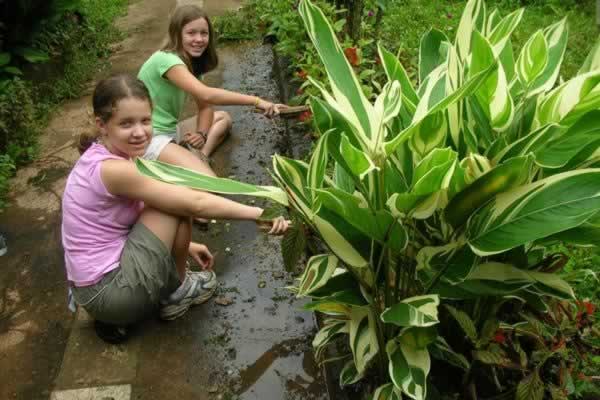
Life-changing Volunteer Vacations
- Source: Chesapeake Family Life
For many people, family vacations create the longest lasting, happiest memories that are carried and shared for a lifetime. A family volunteer vacation has the added element of a new country, community and culture and changing personal outlooks as families give back while receiving a profound, eye-opening experience. Here is a fantastic article in a recent edition of Chesapeake Family Life
Volunteer Vacations that Give Back
November 1, 2019
Taking a family vacation can be a great way for families to relax and reconnect. But what if your family wants a more meaningful experience than the annual trip to the beach or a theme park? Enter volunteer vacations, a popular alternative to the traditional vacation that allows families to give back while also getting away.
Volunteer vacations have been on the rise for the past decade, and volunteer tourism or “voluntourism” is now an almost 200-billion dollar industry. It’s a trend that continues to grow as more families search for ways to make a concrete impact on the world around them.
“I think more people are seeking this kind of vacation because they have a personal desire to connect with a cause they support,” says Kimberly Haley-Coleman, Executive Director of Globe Aware, a nonprofit organization that pairs families with volunteer vacation experiences. “We are living in such a digital world that it can be hard for kids to gain perspective on the world around them, and parents want to give their children the experience of making a difference in a direct way.”
Many organizations, like Globe Aware, Discover Corps, and Together for Good, are helping plan vacations that directly impact a community in need. Globe Aware’s popular Cambodia trips have families build wheelchairs for land mine victims, while its Guatemala trips focus on a local mountain community where families help improve housing and plant vegetable gardens for single mothers.
Though many volunteer vacations focus on global experiences, travelers can also make a difference closer to home, like the trips offered by the American Hiking Society during which participants repair trails at national parks.
Volunteer vacations also take the hassle out of planning, as trips are completely planned by the organization and almost always include housing, food and real-time training. “A volunteer vacation takes the legwork out of planning and it’s a great way to vacation while doing good and working toward a common goal,” says Libby Wile, Senior Director of Programs at the American Hiking Society.
While volunteer vacations are aimed at making a difference for others, the experience is just as impactful for those doing the work. “When a family experiences this type of vacation, the effects can be felt long after the trip is over,” says Haley-Coleman. “It can give kids a sense of appreciation for what really matters, and it can be empowering for them to know that they’ve truly made a difference.“
Read on for five volunteer vacations that offer a variety of experiences from exotic travel to far-off locales, to one-day Caribbean opportunities, to nature-based trips closer to home.
Globe Aware
For almost twenty years, Globe Aware has been connecting families with volunteer opportunities around the world. With 20 international locations, Globe Aware offers a variety of experiences for families who want to make a difference. Travel to Thailand and work with endangered elephants or help rebuild in hurricane-stricken Puerto Rico. Globe Aware’s planned trips last one week and include food, accommodations, medical insurance and bilingual translators. Additionally, Globe Aware also offers customized experiences that can be added on to existing vacations.
globeaware.org
Page 3 of 25
